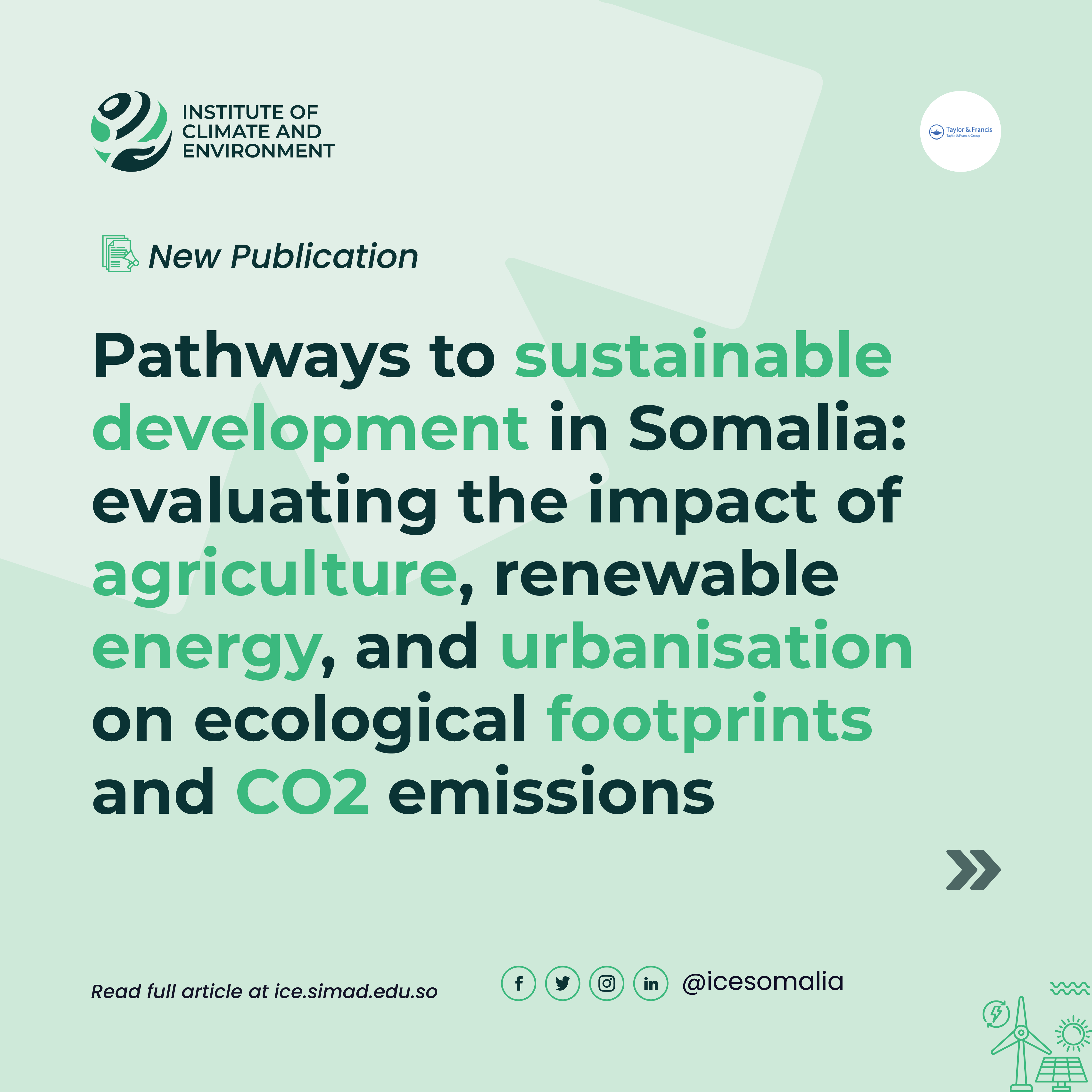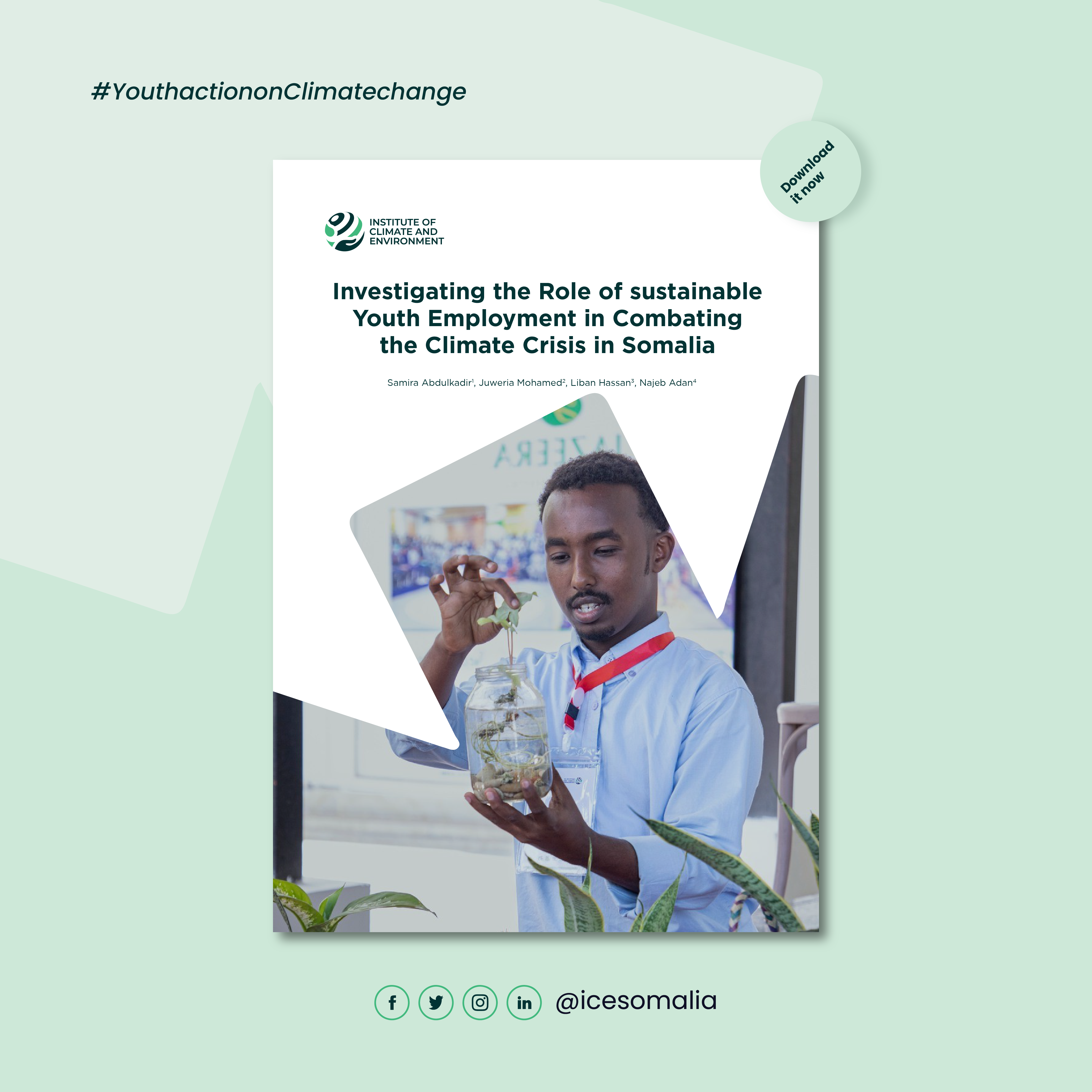
Pathways to sustainable development in Somalia: evaluating the impact of agriculture, renewable energy, and urbanisation on ecological footprints and CO2 emissions
The paper investigates the environmental impacts of agriculture, renewable energy, economic growth, and urbanization on Somalia’s ecological footprints and CO2 emissions, using time-series data from 1990 to 2020. The findings reveal that while agriculture and renewable energy significantly reduce both ecological footprints and CO2 emissions in the long run, agriculture temporarily increases environmental degradation in the short run, whereas renewable energy consistently has a positive effect. Economic growth shows a dual impact, with long-term increases in ecological footprints but reductions in CO2 emissions in both the short and long term, indicating the potential for decoupling economic growth from environmental harm. Urbanization, however, is shown to exacerbate both ecological footprints and CO2 emissions over time. The study underscores the importance of sustainable agricultural practices, renewable energy adoption, green economic growth, and well-planned urbanization to balance economic development with environmental sustainability in Somalia.







